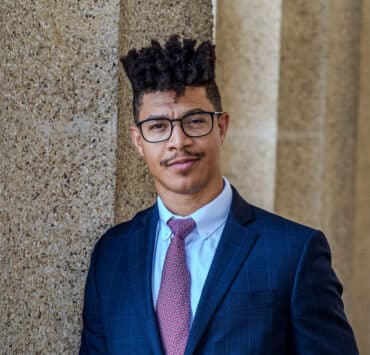|
Getting your Trinity Audio player ready...
|
As senior legal counsel of employment and compliance at Ferrara Candy Company, Sukrat Baber wears several hats. Not only does he oversee litigation, employment, and global compliance matters, but he is also responsible for data privacy and crisis management. In each capacity, he prides himself on being a risk advisor who values clear communication and integrity.
“You can have the most well thought-out and thorough analysis, but if you don’t communicate it clearly, the people you work with won’t pick it up,” says Baber, who spent nearly a decade in private practice before joining Ferrara in 2022. “You have to know the appropriate level of detail to get into, making it easy for your partners to understand. That requires you to put yourself in the shoes of a businessperson.”
His approach has helped support the goals of Ferrara, one of the fastest growing confections companies in the country that has a portfolio of more than thirty brands. As the company continues to acquire other organizations, Baber works closely with various stakeholders to integrate them.
In 2023, Ferrara acquired the Jelly Belly Candy Company, which combined more than one hundred flavors of Jelly Belly jellybeans and gourmet specialty confections with Ferrara’s portfolio of sugar candies. It also added nearly eight hundred employees and three manufacturing facilities to Ferrara’s ranks.
“You can have the most well thought-out and thorough analysis, but if you don’t communicate it clearly, the people you work with won’t pick it up.”
Sukrat Baber
Earlier in 2023, Ferrara acquired Dori Alimentos, one of Brazil’s leading manufacturers and distributors of snacks. Dori’s over 3,100 employees joined Ferrara’s 4,600 team members to advance a shared vision. When faced with the task of integrating a company like Dori, it’s important to recognize that each acquisition has a different culture, Baber says. That has implications on how policies and procedures are communicated to employees.
“It’s recognizing that our points of risk won’t always be the same as theirs,” he shares. “The market and business places are going to be different, so we just can’t make assumptions about what their pressure points are.”
As a leader, Baber values the golden rule: treat others as you’d want to be treated. Another staple of his philosophy is the ability to motivate and inspire teams, even if that just means showing up to work with an infectious, positive attitude. But above all, he values doing the right thing.
“When you’re a litigator at a law firm and you’re in a high-stakes environment, part of the game is testing out the ethical boundaries to get the best result for your client. But, in-house, I’m proud to be empowered to always do the right thing, which is motivating,” Baber says.
“During law school, I wanted to work in human rights, but come to find out, you can do that while working for a candy company,” he continues. “Even though I need to defend the company when there’s a claim against it, we still have the power to make employees whole if we’ve wronged them, whether that’s strengthening our whistleblower policy, having serious conversations with leaders who need to be held accountable, or implementing things that make for a safer workplace for factory workers.”
Baber was born in Pakistan and immigrated to Canada, where he spent most of his formative years. He went on to study philosophy and criminology in undergrad and to get his law degree from Indiana University McKinney School of Law. From there, he worked as an attorney at Schiller Law Offices, O’Hagan Meyer, and Taft Stettinius & Hollister, sequentially. That journey shaped him into the leader he is today.
“In-house, I’m proud to be empowered to always do the right thing, which is motivating.”
Sukrat Baber
“It gave me a sense of risk and advising on risk,” he says. “One broad role I currently have is as a risk advisor, and in that role, it’s vital that you know how to communicate. Communication is definitely a skill you need as a lawyer—both written and verbal.”
In 2022 he was ready for a change and was drawn to Ferrara after a friend informed him of the opportunity. The transition from law firm practice to in-house was a challenge, he admits.
“It’s part of the job that you don’t always spend the amount of time on things as you would as outside counsel. You have to assess how much time something demands, whether it’s employee risk or a financial issue. You need to prioritize,” Baber emphasizes. “But I’ve navigated that by watching my colleagues and getting advice from my colleagues and other leaders. I also like to read literature on how to be a good in-house attorney to guide ways that I can manage my time.”
Baber believes the legal profession is in “a critical environment of change” because of artificial intelligence (AI).
His advice for young lawyers who want to succeed in it: “Don’t rely on the things that I did to break into the field. Be ready to adapt. Think about jobs AI can’t do,” Baber says. “For example, criminal lawyers and employment lawyers are going to be better protected because their work has more of a human element. Maybe consider AI law. Regardless, be prepared for the change.”


